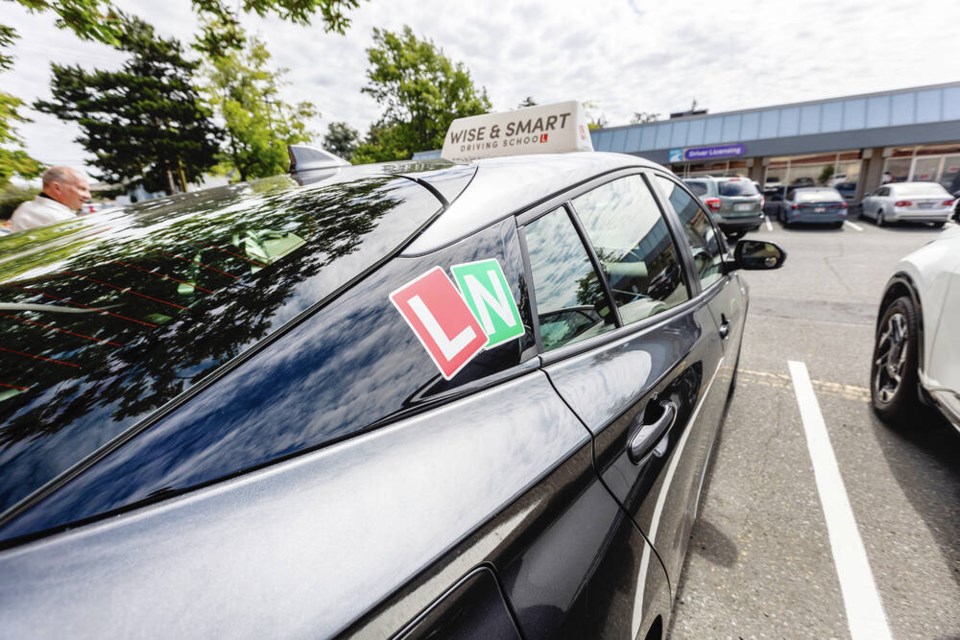A good driving school won’t just teach you where to stop and how to parallel park.

It’s part of modern suburbia: a nervous teen, knuckles clenched over a steering wheel, gingerly trying to manoeuvre a car through a mall parking lot.
The passenger, often a parent, is usually somewhat more calm looking, but not always. On the vehicle’s rear end is the “L” sticker, not just telling us that there’s learner-driver inside, it’s worse, a rookie is now in control.
Should any learning driver be in this position, or should everyone wanting to drive be in the hands of a qualified driving instructor?
In other words, do driving schools actually make our roads safer?
The short answer is: yes, but it also depends on what’s being taught, how it’s taught and whether the lessons stick.
There have been several studies conducted over the years that show us formal driving education can reduce crash risks, especially during the first few months of solo driving.
Reviews show that new drivers who have completed certified programs had a 4% to 11% lower crash rate in their first year on the road, according to a 2020 U.S. National Highway Traffic Safety Administration study conducted in 2020.
Ontario also found that having approved courses integrated with their graduated licensing program showed that new drivers were less likely to be in serious crashes during what we in B.C. would call the “N,” or novice, phase. It’s been similar in B.C.
Schools are not a silver bullet against bad decisions, but formal training does give younger drivers a stronger foundation in risk awareness and hazard perception, skills which could take years to develop properly if one just hits the road on their own.
A good driving school won’t just teach you where to stop and how to parallel park.
They will actually focus on the underlying skills which enhance awareness in preventing crashes. These include things like scanning for hazards early, maintaining safe following distances, adjusting speed in bad weather and staying calm under pressure.
Many experienced drivers believe these “softer” skills are just instinctive. They’re not — especially for teenagers. A driving school is a solid safeguard against overconfidence.
Driving schools are not a panacea though. They can be rendered moot by one of the greatest influences in a teen’s life: the parent.
Spending 10 to 20 hours in a driving school becomes worthless if your teen spends 100 hours watching you tailgating, texting or yelling at other drivers.
Parents should always model the behaviour they want in their kids. Talking about good and bad driving decisions turns education into real life experience.
It’s important to remember however that not all driving schools are created equal. I recall a case from the mainland where a driving instructor was caught not actually having a driver’s licence.
Some schools fly under the radar with outdated curriculum and instructors who are simply going through the motions. Their emphases are often just about providing a basic knowledge set to just pass the road test. That’s irresponsible, if not dangerous. Students come out the other end of such programs overconfident, thinking they are better drivers than anyone.
Combine that with a smartphone, alcohol or even a car load of friends, and you have a recipe for disaster. It’s important then to research driving schools.
Ask questions about instructors’ experience and look carefully at the curriculum being offered.
In B.C., this industry is well-regulated and all schools must abide by a code of conduct. Check to see how long they have been in business and ask for references.
Good driving schools go beyond just getting through the road test. They focus on the “why” as well as the “how.”
Good driving schools will also have broad programs that don’t just focus on the young. I saw an elderly gentleman this week in a mall parking lot who was clearly over the limits of his ability just trying to turn into an empty parking stall. Refresher courses can be vital for seniors, especially when they’ve had a near miss or are starting to lose confidence.
Canada has a complex driving culture and a reasonably tough enforcement regime compared to some countries.
New Canadians can benefit greatly from understanding all the rules and an often challenging North America driving system.
Nervous drivers, like people who may be recovering mentally from a serious crash or road incident, can also benefit from some re-learning from an experienced instructor in order to regain their confidence.
Driving schools work because the most effective learning happens when classroom lessons are paired with meaningful practice, good role models and a mindset promoting patience over ego.
Driving safety doesn’t happen by trying to cram in some knowledge and technique just before a road test. It comes from a solid process of learning about making smart choices every time you drive.
[email protected]